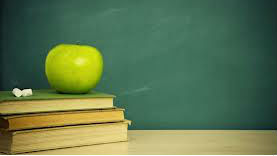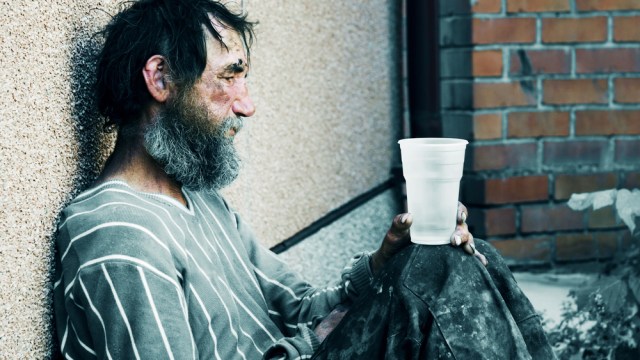Private and Public Schools: They’re Not Always What You Think

A Slate piece on education starts off by declaring, if you send your kids to private school you’re “a bad person.” Not “bad like Hitler,” but bad. I don’t want to link to the piece here because I don’t want to feed the hyperbole beast that’s corroding our civil society with the acid of nastiness. The more we reveal, whether sexually (think Miley Cyrus) or authorially, the more folks do outrageous, irritating things to get noticed.
The author’s judgment is either craven or, if believed sincerely, then dumb. It might be best if it’s the former, caused by “click sickness”—because, to tweak the saying, at least the craven can have a non-craven day once in a while.
Whatever the case, school choice obviously still touches a raw nerve.
I attended public schools in Baltimore City, from kindergarten through 12th grade. My schools weren’t the competitive wunderkind public schools that you hear about in Montgomery County, Palo Alto, or New Trier, Illinois. My high school did have the distinction of being one of only two remaining all-girls public, single-sex schools. It was large. My class had 500 students.
I was an exceptionally self-directed student. I counseled myself on college. I always did more than was required, mostly because I liked the work. After high school I went to Swarthmore, and then to Yale for a Ph.D.
Like many schools, whether private or public, mine had episodes of greatness. My 6th grade “gifted and talented” English class was remarkable. We read challenging works by Huxley, Orwell and B.F. Skinner, on utopia and dystopia. We mastered the narrative foundations of Greek mythology. Some of my high school classes were just as revelatory, and demanding.
I also had duds. This, too, is pretty much the case with any school, regardless of type. To this day, my husband’s convinced that I never had a teacher who showed how “intuitive” algebra is. I couldn’t agree more. Mathematics exists in a box on a shelf in my brain, and I regret that.
One of the almost hallowed beliefs about public schools is that they teach diversity, immerse children in the real world, and school the privileged in a world less so, inculcating a subtle but imperative sense of social responsibility, nuance, and insight. In short, you are part of the whole community when you go to a public school, not in a pre-selected sanctuary.
It’s true that if you looked at a piece of paper with numbers on it, you’d conclude that my public schools were diverse and “real,” indeed. Actually, they were demographic microcosms of Baltimore City. They were overwhelmingly—at least 80 percent—nonwhite (in the early 1980s, race and diversity were really about the distinction between black or white, so the few Asian American or mixed-race students loosely if thoughtlessly got classified socially as “white”).
In real life, however, and in the halls of high school, the school wasn’t all that diverse. It was like a confederation with several different social and academic worlds, mercilessly tracked, both formally (we had E, A, B, and “Business” courses), and informally. Within an overwhelmingly non-white, non-affluent public school, we mostly kept to our own kind. The middle-class white girls and a handful of middle-class African American girls, including the daughters of politicians, who felt that they had to send their children to public schools, hung together. They were almost uniformly in the E or the A courses, the most advanced college-prep courses. The working-class and poor African Americans and the poor white girls all had their own cliques. There weren’t as many in the E or A courses. Was this because of ability? I don’t think so. I think it was a function of racial and social tracking, thriving well into the early 1980s.
We never attended each other’s social events, or visited each other’s homes. We pursued different extracurricular activities. Mostly we were in different classes. We took different buses home, moving in different directions.
It may be that I absorbed a great deal of insight about life, simply by marinating in a larger environment that wasn’t privileged by class.
But I remain genuinely undecided about that legacy. I might have imbibed lessons on graciousness and city life, or I might simply have imbibed a lesson about social segregation, sorting, and tracking.
Today, the elite magnet programs in the middle and high schools still exist almost like cocoons within the public school system. One parent with a child in a middle school A course as opposed to the most competitive program spoke to me of the “Gen Pop” of the school—those students presumably in a No Course or a B course (“how low do the letters go?” my son asks). Another parent, who has just enrolled her child in a competitive middle school program, explained to me that she wanted him in the specific school where the program attracted more students who “looked like” and acted like those at the private school her child had just left.
The magnet programs function, in effect, like private school lily pads on the pond of a public school.
The schools themselves seem subtly to promote the programs as insulated environments of exceptionalism—tuition-free private schools—which seems at odds with the real world mantra of the public school philosophy. Defensively, one program boasts that it sits amid the “most prestigious private schools” in the city.
However, it’s obvious that these programs are more diverse than private schools, in terms of class. Private schools simply can’t compete with that. It doesn’t take $25,000 to get your child into them.
The magnet programs are enticing. They attract highly-motivated children of immigrants, as well as the urban affluent and middle classes. But they are nowhere near as diverse as the public school in which they are nestled. And, intellectually, they are not diverse. They cater to students who study one track of the curriculum intensively, and learn in the same ways, the ways that allow them to do well on the admissions tests, and from my observations, come to value the same kind of achievement, rather narrowly defined.
In Baltimore today, a delicate political ecology governs feelings about public schools. Thankfully, parents are tolerant, and not inclined toward judgment, at least in my experience.
Parents ask themselves if they should they move to get into a district with a good elementary public school, because they either can’t afford a private school or because they prefer and believe in the public school experience. They also worry over middle school options, which aren’t as good, unless the child gets admitted into the competitive, math-oriented magnet program.
Middle school seems to be a missing link educationally, in both public and private schools.
There are two zoned public elementary schools that parents covet. The housing in these zones is among the most expensive in the city, and out of reach for most Baltimoreans. While it’s true that parents don’t pay private school tuition, they must be able to pay a mortgage on a home that is more expensive than other districts, and they pay higher property taxes in these neighborhoods. While it’s true that these schools are public, they are also by one or two important criteria not that diverse, since students come from the same, largely privileged neighborhood, and their parents tend to share the same beliefs and lifestyles, from income all the way down to the particulars of what snack foods they buy, where they shop, and the bumper stickers on their cars.
For me, the public schools were okay. Perhaps very good. It’s hard to tease out the legacy of a school years after the fact. I met some exceptional female friends in high school, and that alone improved my life immeasurably.
For my brother, this wasn’t the case. For a few reasons he would have benefited from going to a smaller and better school than the zoned one he attended. His life turned out well, especially as he moved on to college, but my father was politically dogged about the public school agenda.
Although he wouldn’t have said something so facile, he probably would have agreed that you’re a “bad person” if you send your kids to a private school. In my case, that belief might have looked like an act of political courage. In my brother’s case, frankly, that belief looked more like an act of political narcissism—an unwillingness, because of the moral luster and political agenda attached to public schools, to conjugate the educational options with the particular needs of a child.
As I moved on to very elite private institutions, I began to cultivate a certain reverse snobbery about having attended Baltimore City public schools. I made it sound as if I was toting a knife to school each day, fighting for my life in the blackboard jungle. Of course, this wasn’t remotely the case, but I learned that there was a peculiar social cache within elite private school environments attached to having not gone to an elite private school. Call it the exoticism of the educational other, I suppose.
That’s how it goes with social privilege sometimes. School choice and status is too context-specific and complex to sustain a generalization.
Are you less steeped in privilege than a private school student if you attend a public school program that’s intellectually and socially insulated, nerdier and superior to other offerings, at either public or private schools, and is perhaps subtly or blatantly intolerant toward other students’ intellectual shortcomings, where all value attaches to a narrow kind of academic prowess? Are you more privileged if you attend a mediocre private school that’s pleasant but not rigorous, or if you attend a zoned elementary school in a neighborhood where houses cost upwards of $1 million? Are you more insulated at a private school that aspires to be like a public school in its diversity and sense of social engagement, or at a public school that aspires to be like a private school in its competitiveness and insularity? More privileged in a public school with a stellar reputation among college admissions officers, or in a private school with a so-so reputation?
It’s hard to say—and much too hard to generalize into a political judgment.





